The team offering help and support to violent South Yorkshire offenders from inside their prison cell
and live on Freeview channel 276
Being arrested, leading to charges against you which take years to be spent and removed from your criminal record, can result in your life changing in a second.
That fate is faced by many in Sheffield, and the rest of the county, every day.
Advertisement
Hide AdAdvertisement
Hide AdBy the time that some people come out of custody, they have lost their job, their home and have nowhere to turn.
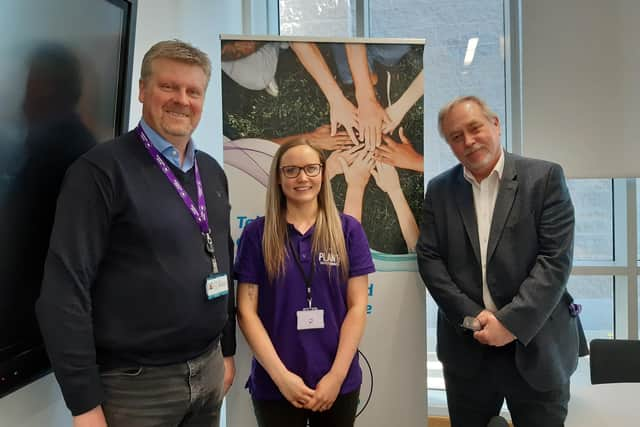

But if you do not know how you have ended up in that situation, where you can find help or what you can to do turn things around, how do you stop it from happening again?
Plan B custody navigators
Thankfully, for people in South Yorkshire, a team of professionals called the Plan B custody navigators are on hand to help, using a ‘trauma-informed,’ holistic approach, through which they seek to truly understand an offender, their motivations and what can be done to prevent them from committing further crimes.
As part of the initiative, which is provided by the South Yorkshire Violence Reduction Unit, custody navigators are based in the county’s three custody suites in Sheffield, Barnsley and Doncaster.
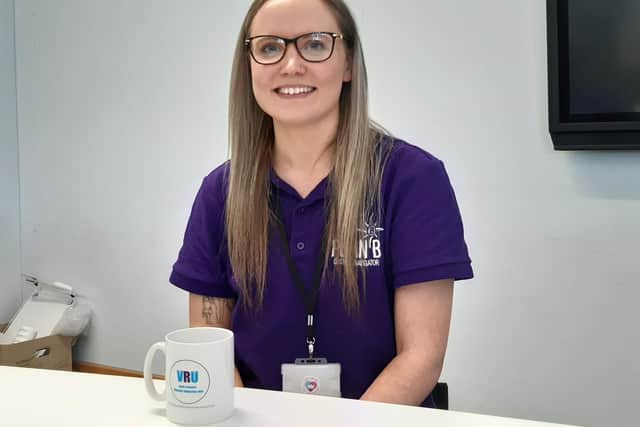

Advertisement
Hide AdAdvertisement
Hide AdThey offer non-judgmental support to anyone from the age of 16 or over who has been arrested for a violent offence, or is at risk of committing such a crime.
Looking at the factors that have led an offender to commit a crime
The team are more concerned with the factors that have led to someone ending up in a prison cell, than the crime itself, as Plan B co-ordinator and custody navigator, Brooke Hitchen, explains: “We work separately to criminal proceedings, and our approach is very trauma-informed so we don’t really ask about the particular crime or what’s happened to get them into custody. We are more interested in what sort of pathway led them to commit crime in the first place.”
The term ‘trauma-informed’ refers to an understanding of the trauma a person has experienced; whether they have received any help; the coping mechanisms they may have developed as a result; and ultimately, how it has shaped them as they aged into adolescents and then adults.
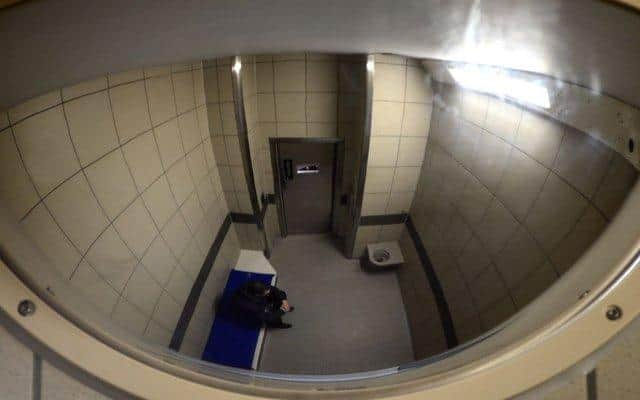

“We find that often criminality is actually a symptom of something else. I’d say that the vast majority, if not all, of the clients we have worked with have actually themselves been victims of crime or victims of trauma, abuse, bereavement. And often their criminality is a working out of unresolved trauma. Our support is very much centred around the root cause of why they made these decisions,” said Brooke.
‘Although we differ in position, we don’t differ in values’
Advertisement
Hide AdAdvertisement
Hide AdWhile it is not a prerequisite for the job, Brooke says that most of the custody navigators have themselves been through ‘hardship or difficulty growing up’ or ‘some sort of trauma’.
This means they are adept at relating to, and understanding the needs of, their clientbase, which is currently comprised of 49 individuals across South Yorkshire.
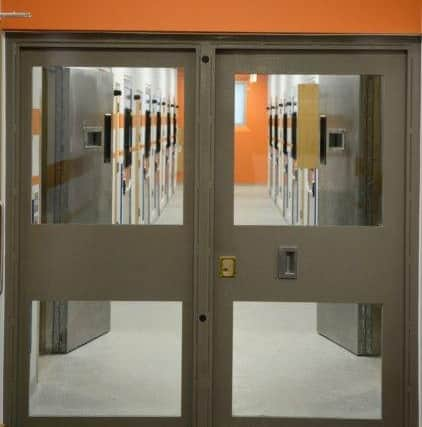

“I think quite often our clients can struggle with professionals or authority, there’s a lack of trust because there’s some sort of us versus them, and they get this sense that professionals are better than them.
“We try not to operate out of a hierarchy, because although we do differ in position, we don’t differ in values and we try to communicate that,” said Brooke.
The journey from being the victim of a violent crime to a custody navigator
Advertisement
Hide AdAdvertisement
Hide AdBrooke herself was the victim of a violent crime, but not when she was not living in South Yorkshire.
She subsequently found herself on the cusp of being exploited into committing crimes, before extricating herself from that situation through support services – but it took time.
Brooke explains how these experiences have given her a ‘passion’ for helping people who perhaps were not able to extricate themselves from similar situations, and those whose traumatic experiences have led to them committing crimes.
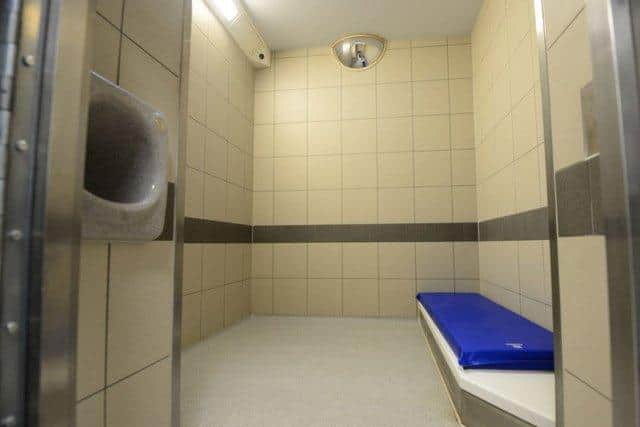

Brooke said: “Quite often people are confused about why I help people who’ve been arrested for violent crime. I think it’s because I recognise the sort of trajectory from victim to perpetrator. Through my trauma and exploitation, I was caught up in sort of criminal exploitation or was heading towards that. That was about a decade ago. So my experience of that world, and those people, I understand the complexity behind it. And that decision can be made from just trying to survive, rather than just from the fun of it, I guess.
Advertisement
Hide AdAdvertisement
Hide Ad“I think that’s why I’m passionate about Plan B, because if I’d had a navigator come and say: ‘Here’s the support on offer, and here’s how you access it,’ – that would have been amazing to have. I did eventually find those services but it did take a long time because I didn't really know where to start, or who to ask.”
Brooke and the team are keen to state that while they do work with individuals who have been exploited by organised crime groups, or ‘gangs,’ the most common contributing factor in the criminality of those they work with is past trauma, and domestic abuse in particular.
“The trauma is in the growing up...and we need to give people another chance in that sense,” said Graham Jones, Head of the South Yorkshire Violence Reduction Unit.
Speaking to detainees in their prison cell
The custody navigators from the Plan B team, which has been running since the end of 2019, go and speak to suitable candidates in their prison cell following arrest, a crucial time for what the team describes as a ‘reachable and teachable moment’.
Advertisement
Hide AdAdvertisement
Hide AdIf the detainees want their help – something Brooke describes as an essential element of the relationship between the custody navigators and detainees – they will then carry out a brief assessment.
“When you're talking to people you find out a bit about their background, a bit about their childhood. And we don’t dig for information, it’s more if they choose to disclose it,” said Brooke.
She added: “But quite a few have been in care or come from broken families, or were maybe kicked out of school at quite a young age or have been through some sort of abuse, whether that be neglect, sexual, emotional,” said Brooke.
From there, the custody navigators will help clients with a myriad of essential tasks such as registering with a GP; finding council or private accommodation; enrolling on educational and professional courses; searching for jobs and registering for Universal Credit or submitting a Personal Independence Payment (PIP) claim.
Advertisement
Hide AdAdvertisement
Hide Ad“We often find that once we navigate, and we help people access the help and support they need, they can overcome obstacles, and their decision-making has changed. They decide that actually they want to move away from criminality,” said Brooke.
“We help them to access support for that, and we see them turn their lives around. They stay away from crime, they find employment, they find support for their mental health and start contributing to society in a positive way.”
Mental health support
Helping clients with mental health support is another key facet of what Plan B does.
In addition to helping clients register with Sheffield’s Improving Access to Psychological Therapies (IAPT) team, Plan B can also provide people with 12 sessions – and more if they need it – of counselling, often trauma-informed counselling, while they wait for longer-term mental health support.
Advertisement
Hide AdAdvertisement
Hide AdMore than three-quarters of Plan B’s client base are male, and Brooke cites Andy’s Man Club as an amazing resource for the men they work with. The mental health charity was set up after its founder lost his brother to suicide, and it runs ‘men’s talking groups’ up and down the country, including South Yorkshire.
Reducing the minimum age of clients to 10-years-old
Ian Bailey, Violence Reduction Unit Partnership Manager, said the Unit has recently lowered the minimum age of the people they help from 18 to 16, and they are now looking at reducing it even further to 10-years-old.
He said: “We’re looking at extending the service if we can to include 10 to 16-year-olds if we can, because we understand that children are becoming involved with criminal activity, from the age of criminal responsibility onwards.”
While there are not huge numbers of South Yorkshire children in that age bracket who are involved in criminality, the team says lowering their minimum client age to 10 would provide them with the opportunity to help those that are, and to ensure that no-one ‘falls through the net’.
Advertisement
Hide AdAdvertisement
Hide AdPlan B is just one of a number of initiatives under the umbrella of the South Yorkshire Violence Reduction Unit, which is based at Shepcote Lane in Tinsley, Sheffield, and takes ‘a public health approach to preventing and reducing violence’.